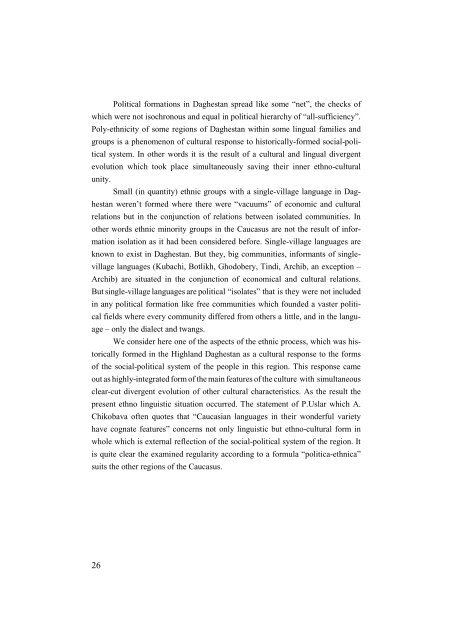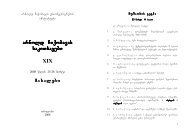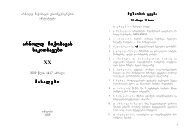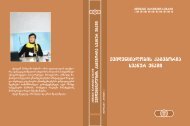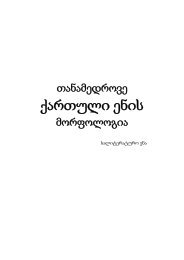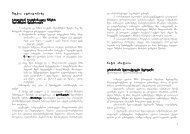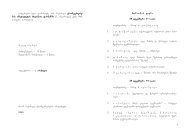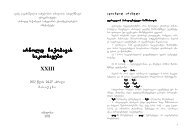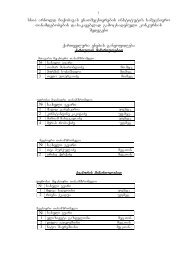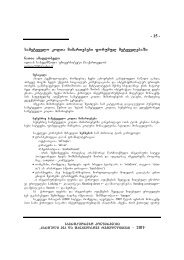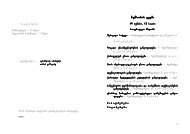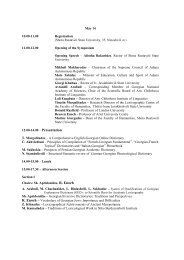5 r. a b a S i a (Tbilisi) bgeraTSesatyvisobis erTi rigisaTvis qarTvelur ...
5 r. a b a S i a (Tbilisi) bgeraTSesatyvisobis erTi rigisaTvis qarTvelur ...
5 r. a b a S i a (Tbilisi) bgeraTSesatyvisobis erTi rigisaTvis qarTvelur ...
Create successful ePaper yourself
Turn your PDF publications into a flip-book with our unique Google optimized e-Paper software.
Political formations in Daghestan spread like some “net”, the checks of<br />
which were not isochronous and equal in political hierarchy of “all-sufficiency”.<br />
Poly-ethnicity of some regions of Daghestan within some lingual families and<br />
groups is a phenomenon of cultural response to historically-formed social-political<br />
system. In other words it is the result of a cultural and lingual divergent<br />
evolution which took place simultaneously saving their inner ethno-cultural<br />
unity.<br />
Small (in quantity) ethnic groups with a single-village language in Daghestan<br />
weren’t formed where there were “vacuums” of economic and cultural<br />
relations but in the conjunction of relations between isolated communities. In<br />
other words ethnic minority groups in the Caucasus are not the result of information<br />
isolation as it had been considered before. Single-village languages are<br />
known to exist in Daghestan. But they, big communities, informants of singlevillage<br />
languages (Kubachi, Botlikh, Ghodobery, Tindi, Archib, an exception –<br />
Archib) are situated in the conjunction of economical and cultural relations.<br />
But single-village languages are political “isolates” that is they were not included<br />
in any political formation like free communities which founded a vaster political<br />
fields where every community differed from others a little, and in the language<br />
– only the dialect and twangs.<br />
We consider here one of the aspects of the ethnic process, which was historically<br />
formed in the Highland Daghestan as a cultural response to the forms<br />
of the social-political system of the people in this region. This response came<br />
out as highly-integrated form of the main features of the culture with simultaneous<br />
clear-cut divergent evolution of other cultural characteristics. As the result the<br />
present ethno linguistic situation occurred. The statement of P.Uslar which A.<br />
Chikobava often quotes that “Caucasian languages in their wonderful variety<br />
have cognate features” concerns not only linguistic but ethno-cultural form in<br />
whole which is external reflection of the social-political system of the region. It<br />
is quite clear the examined regularity according to a formula “politica-ethnica”<br />
suits the other regions of the Caucasus.<br />
26


